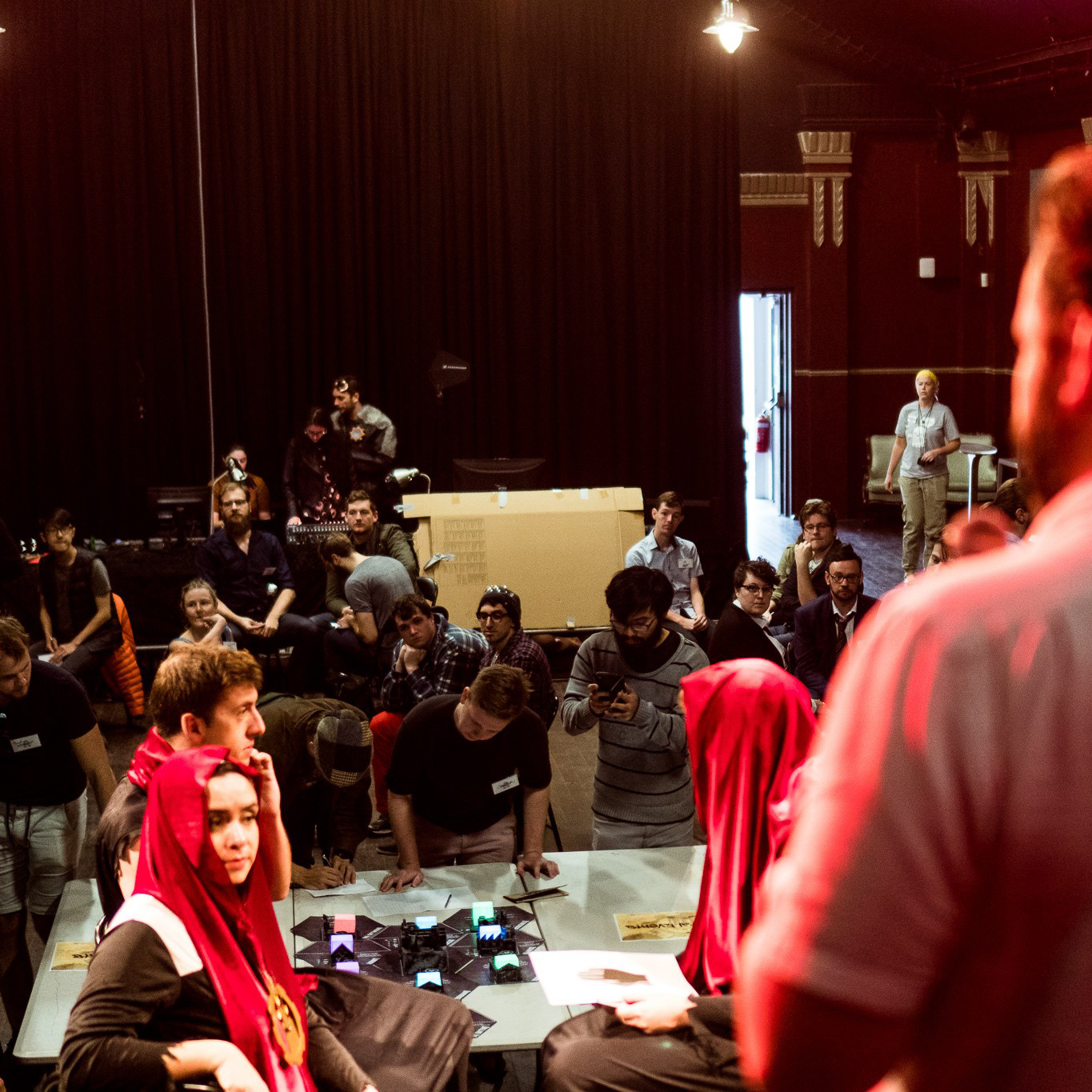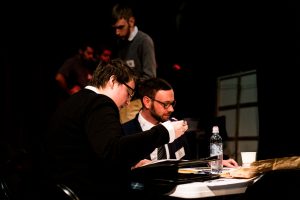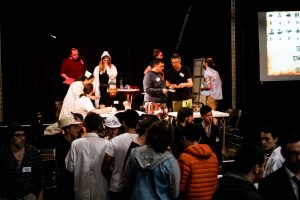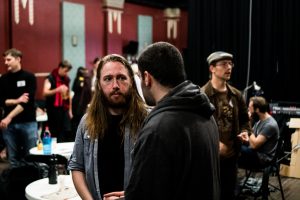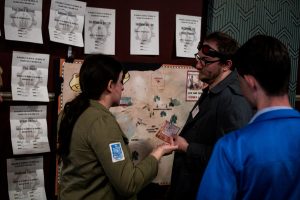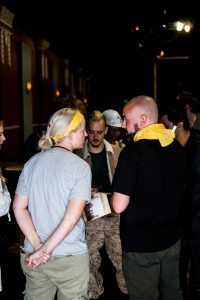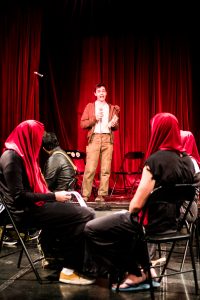As is tradition with Megagames, very few things went to plan.
I feel confident saying that AtFD is the most refined set of mechanics a Sydney Megagamers game has had, and for that I’m quite proud of the development team and Moderators. While the chaos of such a large event ultimately reigned, I feel that the ability of many game mechanics and components to run smoothly continued throughout the day in one way or another.
While I eagerly await formal feedback from the masses, I’ve had a chat with the dev team and also spent some time reflecting on my own feelings about the game. My reflections are as follows:
- No amount of planning and design will avoid the first few hours of chaos that comes with a ~90 player event.
- Bookkeeping is vital, and decreasing the need for it at all is even more vital. The way the Mods were prepared to track a lot of information was great, but still wasn’t enough for so much complexity.
- Having fluidity of passing time only works if actions can be taken in reasonable amounts of time. A more robust hybrid of ‘live’ and ‘turn-based’ might be the sweet spot.
- Player briefings might have been too light on details, though the scarcity of setting and world details did seem to produce a lot of imaginative storytelling (as hoped).
- Having very little planned narrative (compared to past games) was bittersweet, but seemed to survive the day. Players make their own fun once you’ve set up the goalposts and barriers.
- Playtesting does not adequately predict resource balance/imbalance – I had been sure the issue would be with Food/Materials, but it ended up being with Loyalty and Manpower. In the final design stages we even specifically decreased Manpower in the game for fear of too much abundance making things boring.
- The allocation of authority (through government or leadership roles) needs to be countered, if not balanced. We designed this specifically to imbalanced, but elections were so cumbersome and transitions were so messy that people often endured rather than try to counter the imbalance.
- Having elections player-called worked, but I’d be interested to see the strategy that would eventuate if election periods were pre-determined (say, every 3 or 4 terms) so opposing nominees could think longer-term about their campaign.
- If players move in and out of roles during the game, their briefing material needs to be top-notch to make that process clean. Granted, we wanted the change of government figures to be a chaotic time, but the difficulty may have been too high.
- Having Loyalty, or any resource, be so volatile is a huge risk. Loyalty could benefit from an end-of-turn/term consolidation moment where tokens are adjusted to match their dashboard figure.
- Team abilities were too nuanced. This wasn’t a bad thing necessarily, but didn’t pair well with the fact that most players (understandably) put a lot of focus on their abilities. Perhaps this ties in with the detail and quantity of player briefings – if abilities had been more of a footnote, players may not have put so much emphasis on using them.
- Having a central location for buildings and events, with no limitations on who could go there (or when), was asking for trouble. Dividing these areas up in future, and possibly having attendance limits, might help.
- More hypotheticals or expectations could be given to players ahead of time. A big issue I saw was all players giving the Government their resources, especially when freshly returned from Expeditions, and then finding themselves unable to do much with empty hands. This was always a power-play available to the Government, but nowhere in the rules was it suggested that maybe the Government doesn’t have that right. A lot of interpretation could have been urged on with more pre-game expectation-setting examples.
I could go on, but you get the picture – plenty of food-for-thought, as ever, and lots of lessons for the future.
Did you attend AtFD and want to have your say? A survey was sent out to all players via email, and the results will be analysed here in a future blog. Get in touch if you missed the email!
- Patrick

